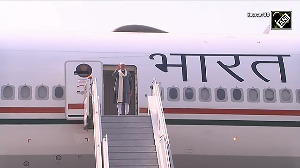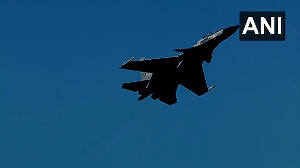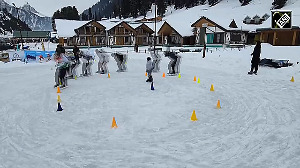
A turnout of over 60 per cent was recorded on Saturday in the first polls in 25 years in Sri Lanka's Tamil-majority Northern Province, four years after the military defeated the Liberation Tigers of Tamil Eelam to end decades of ethnic conflict.
People participated in large numbers in polling in the five districts of the province, which had a total of 715,000 registered voters.
Jaffna district recorded a 63 per cent turnout while Kilinochchi recorded 70 per cent. In Mannar, 70 per cent of voters turned out while in Vavuniya and Mullaithivu, the turnouts were 65 and 71 per cent respectively.
Jaffna, Kilinochchi, Mannar, Mullaithivu and Vavuniya districts form the provincial council's jurisdiction. For decades, these districts were the main strongholds of the rebel Tamil Tigers.
Officials said counting of votes had begun at 478 centres at 6 pm (local time).
Election Commissioner Mahinda Deshapriya said all measures had been taken to ensure a free and fair election and all results would be released by 6 am on Sunday. Independent monitors said the poll in the north was by and large incident-free. They, however, reported violent incidents from the Sinhala-dominated Central and North Western provinces which also went to the polls on Saturday.
The landmark election is being seen as a test to decide whether the predominantly Tamil province wants more opportunities for developments or the people want more autonomy.
The election is also expected to give minority Tamils a chance at self-rule after decades of ethnic conflict that left over 100,000 dead.
The main Tamil party - Tamil National Alliance -- is expected to win the Northern Provincial Council while the ruling United Peoples Freedom Alliance of President Mahinda Rajapaksa is expected to win in Central and North Western provinces.
"In Kilinochchi the election was entirely peaceful with over 70 per cent voting," said Rupavathi Ketheeswaran, the district's top election official. Kilinochchi served as the LTTE's administrative seat in their decades-long parallel administration.
Earlier, voting at some 850 stations began on schedule at 7 am (local time) amid tight security to elect the provincial administration in the war-affected region once dominated by the Tamil Tigers until their defeat by the military in 2009. Soldiers patrolled the streets with police, election observers said. Polling ended at 4 pm.
More than 2,000 local and foreign observers, including from India, were deployed in the Northern Province, where people voted to choose a 36-member council for a five-year term.
The run-up to the election saw allegations of voters being intimidated by the army. The charge was firmly denied by the military. There were 906 candidates for the polls in the Northern Province, which is witnessing its first election after councils were created under the 13th Amendment, a byproduct of the 1987 Indo-Lanka Accord.
In the first north and east provincial council elections in 1988, only one political party participated due to the LTTE's armed campaign to set up a separate Tamil homeland.
"My family and I want to maintain the peace here," an elderly man said after voting in Jaffna. He said he was supporting President Mahinda Rajapaksa's Tamil ally, Eelam People's Democratic Party, which is a part of the ruling coalition.
"Tamils have a lot of problems which are yet to be resolved," said a trader who did not want to vote. The TNA maintained that Tamils were keen to vote but were prevented from doing so by the military, which had intimidated them.
It also complained that fake propaganda material, which said leading TNA candidate Ananthi Saseetharan had defected to the ruling coalition, had been distributed by government supporters.
Posters appeared in several areas warning that a vote for the TNA would be a return to the period of terror when the LTTE ran its parallel administration. It was not known who put up these posters.
A TNA candidate's vehicle was attacked at Jaffna's Kodikamam sector while another attack against the TNA was reported in Chavakachcheri area, local monitors said. The TNA seeks a self-autonomous administration in the Northern Provincial Council. However, the central government has the powers to control provincial councils through the executive powers of the President.
One of the election monitoring groups, The Centre for Monitoring Election Violence, predicted a low turnout for the Northern Provincial Council election due to widespread disillusionment with the poll process and unacceptable long distances to polling centres.
Ironically, in the run-up to the polls, the northern election campaign was fought not in the north but from the capital Colombo and the rest of the south.
The reason was the government's blistering attack on the TNA's manifesto. It was the Vadukkodai resolution which inspired slain LTTE chief Velupillai Prabakaran to wage his bloody separatist campaign for a separate Tamil homeland in the north.
President Rajapaksa accused the TNA of trying to drag the island back to LTTE's demand for separation. The TNA manifesto also vowed to retain the existing system of provincial councils through their mandate.
This would strike a chord with India as New Delhi had urged Colombo to shelve its plan to dilute the provincial powers that became part of the Sri Lankan constitution due to the Indian intervention in 1987.
The rebels were defeated in May 2009 but the final phase of that conflict remains dogged by war crimes allegations.
Image: An ethnic Tamil woman waits in line to cast her vote at a polling station during the first provincial polls in 25 years in Jaffna, a former war zone in northern Sri Lanka
Photograph: Dinuka Liyanawatte/Reuters









 © 2025
© 2025